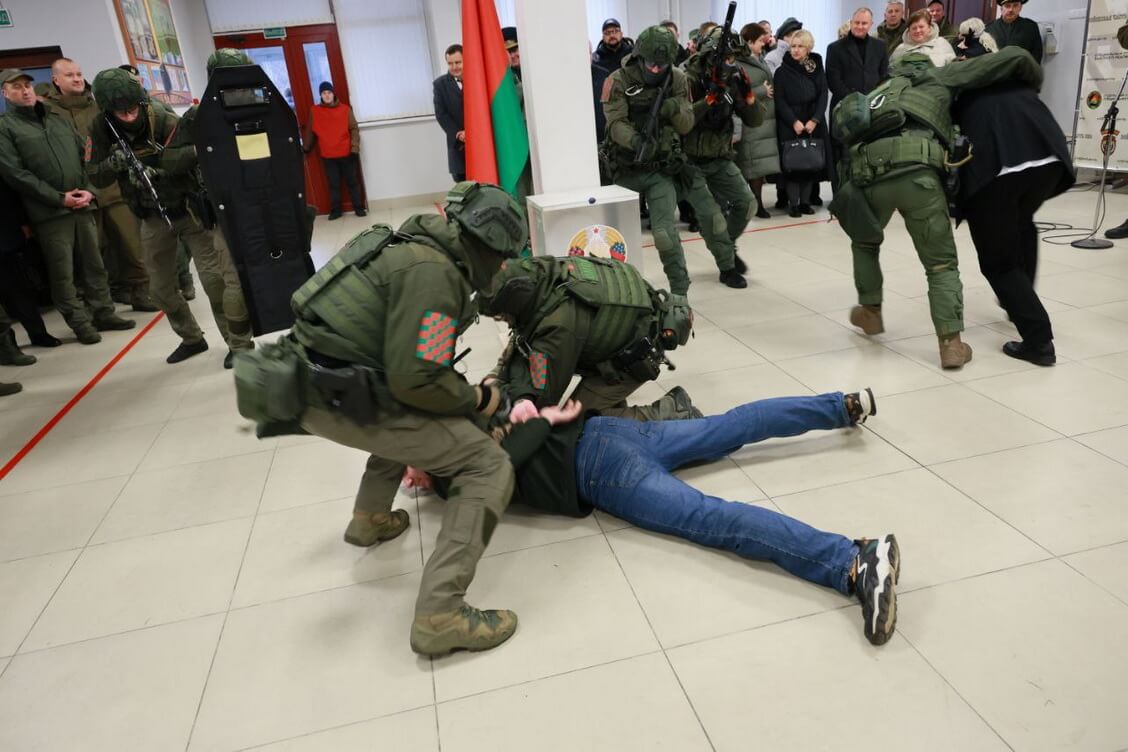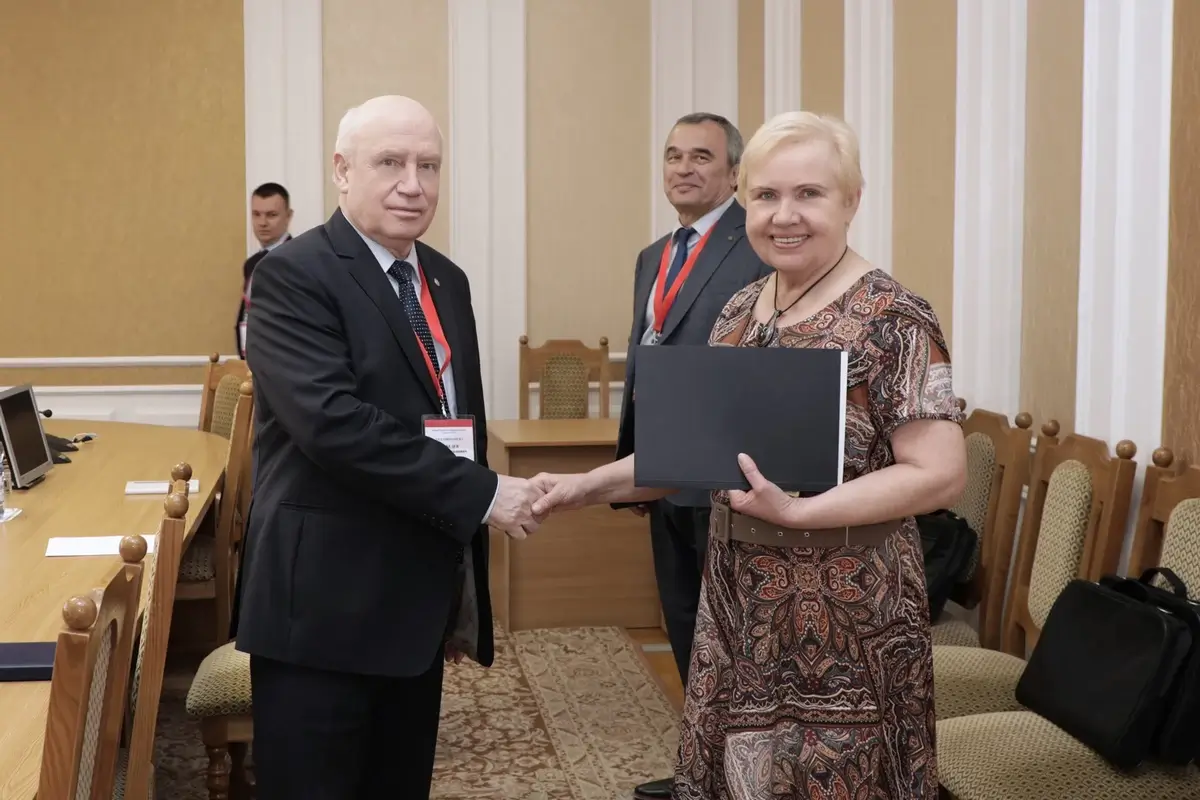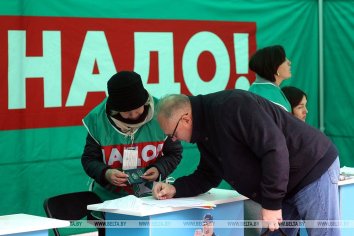Belarus’ central election commission (CEC), which is fully controlled by Alaksandar Łukašenka, plays a key role in election manipulation, according to his opponents. On the 35th anniversary of the CEC, the Belarusian strongman—who has been in power since 1994 and is running for a seventh term in January—described the CEC as a “genuine instrument of democracy.”

In his totalitarian regime, however, the CEC does not serve the nation, but only one man. The CEC chairperson regularly reports to Łukašenka and receives direct instructions from him, despite the Electoral Code stipulating that the commission must be independent of the government.
On multiple occasions, Łukašenka has openly acknowledged that regional governors actively manipulate election results in his favor. This admission confirms that electoral fraud is a standard practice.
In any other country, such confessions would lead to the resignation of top election officials, but not in Belarus, where the rules are decidedly different.
From democracy to dictatorship
The CEC was established by the Supreme Soviet of the Belarusian SSR on December 4, 1989, during the period of perestroika, as the Communist Party’s grip on power weakened.
The electoral process became more competitive, with votes being counted, despite the Communist Party still having a significant power base.
In 1990, members of the opposition Belarusian Popular Front, as well as Stanisłaŭ Šuškievič, a pro-independence politician, were elected to the Supreme Soviet.
However, democracy in Belarus was short-lived. After his victory in the 1994 presidential election, Łukašenka began reversing democratic reforms and exploiting the electoral process for his personal ends.
In 1996, shortly before a constitutional referendum, Łukašenka’s security forces forcibly removed CEC Chairman Viktar Hančar from office. He then installed Lidzija Jarmošyna as CEC head, defying the legal requirement that top election officials be appointed by the Supreme Soviet.
Jarmošyna presided over Łukašenka’s vote-rigging machine for 25 years, openly declaring, “I am a member of the incumbent’s team.”
The Independent Institute of Socio-Economic and Political Studies (IISEPS), which was shut down in August 2016, conducted surveys that helped assess the extent of electoral fraud.
For example, in the 2015 election, the CEC claimed that Łukašenka won with 83.5 percent of the vote, while IISEPS polls suggested he may have received only 50.8 percent. The IISEPS also found that opposition candidate Tatyana Korotkevich had 22.3 percent of the vote, while the CEC reported she received just 4.4 percent.
2020 uprising against fraud
In 2020, voters forced several precinct commissioners to release paper vote counts that showed Łukašenka losing to his chief rival, opposition candidate Sviatłana Cichanoŭskaja.
A verification effort led by the civil initiative Holas, which collected and verified photos of ballots, confirmed that Cichanoŭskaja had won the election nationwide.
The day after the election, Cichanoŭskaja was invited to meet with Jarmošyna, but instead found herself surrounded by security officers who pressured her to leave the country.
Jarmošyna retired in late 2021, and Łukašenka appointed 68-year-old Ihar Karpienka, a veteran of the pro-government Communist Party, as CEC chairman. Karpienka gained Łukašenka’s trust by managing the constitutional referendum of 2022 and the parliamentary and local elections in February 2024. Both the referendum and the elections were seen as a clean sweep for the government and as dress rehearsals for the January 2025 presidential election.
In June 2023, Łukašenka told Karpienka, “About 80 percent today unequivocally support the course we have set. . . We will continue to fight for the 20 percent, those who are undecided or against us.” This was the target Łukašenka set for his top election official.
Electoral laws
Karpienka claims that Belarus’s electoral legislation meets international standards, citing conclusions from the International Monitoring Institute of the CIS Interparliamentary Assembly, a government-friendly body.
In reality, the government amended electoral laws in 2023 to make it even harder for the opposition to challenge election results. These changes included prohibiting voters from photographing their ballots, banning ballots from being taken out of polling stations, closing all polling stations abroad, and barring political exiles from running for office. New legislation also prohibits the disclosure of election commission members’ identities, and election officials are heavily guarded on election days.

Ordinary precinct commissioners may not even be aware of the final vote tally at their station. Each commissioner only counts a portion of the ballots and reports the result to the chairperson, who then compiles the official tally. Commissioners are likely unaware of how accurate these numbers are, which may alleviate any potential guilt over participating in vote manipulation.
After 2020, local executive authorities have strictly vetted candidates for election commissions to ensure that opposition voices are excluded.
According to the Electoral Code, members of political parties and public associations must make up one-third of election commission members. However, district government officials now fill this quota exclusively with loyalists.
The government has shut down all opposition parties and most NGOs. As a result, the commissions are composed solely of representatives from pro-government parties and state-backed organizations.
While national and international observers are allowed at polling stations, the national ones are chosen by the executive authorities, and international observers are usually selected from groups like the Commonwealth of Independent States (CIS) or the Shanghai Cooperation Organization, which have a history of giving favorable assessments.
For the upcoming election in January, it is likely that observers from marginal pro-Russian groups in Europe will be invited, further undermining the credibility of the process. The government no longer invites observers from the Organization for Security and Cooperation in Europe.
On December 4, Karpienka announced that the CEC had started accrediting observers from the CIS mission, led by former Russian intelligence officer General Sergei Lebedev, who had previously praised the 2020 election despite widespread protests.

Opposition overpowered as Belarus faces another rigged election
Opponents of the regime have been thoroughly outmuscled, and their efforts now seem futile—like bringing a knife to a gunfight. No opposition candidates are expected to run in the upcoming presidential election.
Additionally, the opposition’s call for voters to choose “none of the above” will not provide any meaningful data to assess the true outcome of the election.
Some opposition figures have proposed a boycott, but even this would not reflect the reality, as the CEC can always report inflated voter turnout. Many public sector employees will be coerced into voting, often early, to ensure a high turnout.
Łukašenka is already strategizing on how to turn the page on 2020 with the help of the CEC.
In the current system, the identity of the top official matters little. The real issue is the system itself, which must be changed to ensure credible elections.
